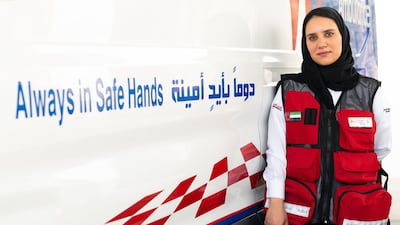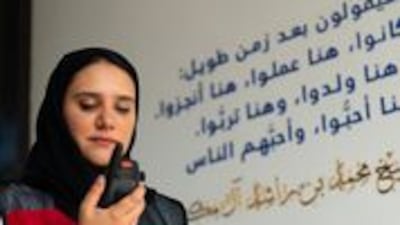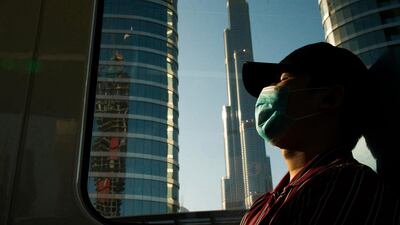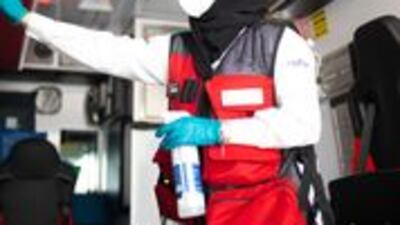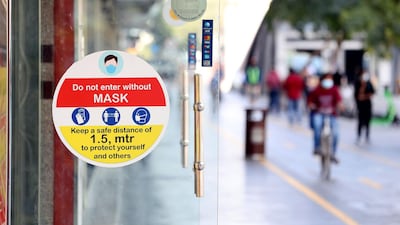As the first Emirati woman in Dubai's Air Wing Ambulance Unit, experienced paramedic Hamda Al Hammadi is used to meeting a challenge head on.
With the arrival of the coronavirus pandemic, she returned to a career on the ground.
This has placed 31-year-old Ms Al Hammadi on the front line in the fight against Covid-19.
Like many health workers, her selfless efforts to keep the nation safe have now been recognised by the Frontline Heroes Office, set up to highlight the achievements of those working to defeat the virus.
Ms Al Hammadi and members of her family contracted Covid-19, and for several agonising weeks she and her family battled the virus, before all making full recoveries.
It gave her an insight into both sides of the virus – as a patient and and as a first responder.
“The conflict of our job was that we desperately wanted to help others but didn’t want to harm our families,” she said.
“We were under pressure, working 12-hour shifts and overtime.
“When there were critical cases and I saw a patient struggling to breathe, it felt like I was suffocating with them,” Ms Al Hammadi said.
A career in medicine and a commitment to help others was the Emirati’s childhood dream, and also her father’s wish.
But during her studies at Higher Colleges of Technology – Dubai Women's College, her father died.
Ms Al Hammadi pressed on with her ambitions, despite colleagues fearing she may not have been up to the physical rigours of a frontline career.
Dubai goes into lockdown in 2020:
While many thought she would opt for an administrative role once gaining her qualifications, Ms Al Hammadi defied expectations and worked as an advanced paramedic in the field with Dubai Ambulance Services.
There she served for 13 years, becoming an inspirational figure to other Emirati women when she qualified to work in the air ambulance service.
“People around me tried to tell me that work in the field wasn’t for me,” she said.
“They said I needed more physical strength and that the work was dangerous. But I knew it was what I wanted to do.”
As the virus reached the UAE, she left the air wing to return to ambulances and was among the first group of paramedics assigned to respond to suspected cases.
In the early stage of the pandemic, Ms Al Hammadi, her mother and her four brothers and sisters became infected with the virus.
Her mother was most severely affected.
“I remember when they took my mother to the hospital, knowing that I wouldn’t be able to see her and check on her condition – I hated myself,” she said.
“Those weeks were hard.
“I asked myself why I chose such a job – everyone was isolating at home and I was the only one with outside contact working in a medical field.
“But I have an understanding family – they supported me," Ms Al Hammadi said.
“Alhamdulillah, everyone made a full recovery. My mother came back home and she is fine.”
Despite suffering moderate Covid-19 symptoms, Ms Al Hammadi was also soon able to return to work.
The experience helped her empathise with coronavirus patients.
“I knew what they were going through and understood how it felt to have a family member taken to hospital,” she said.
“Before, people wouldn’t pay much attention to paramedics and other medical staff, but now we’re receiving so much praise and recognition for what we do.
“We know that our jobs come with an element of risk, but it means a lot to feel such positive vibes," Ms Al Hammadi said.
“We will get through this together.”
